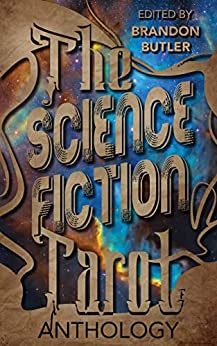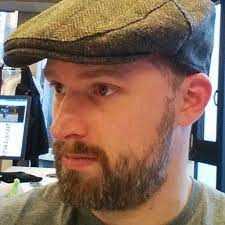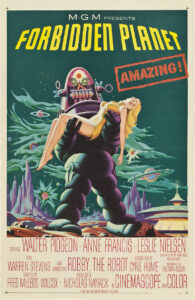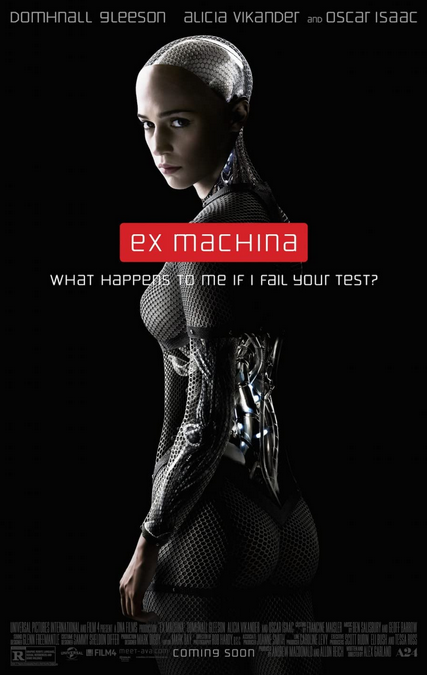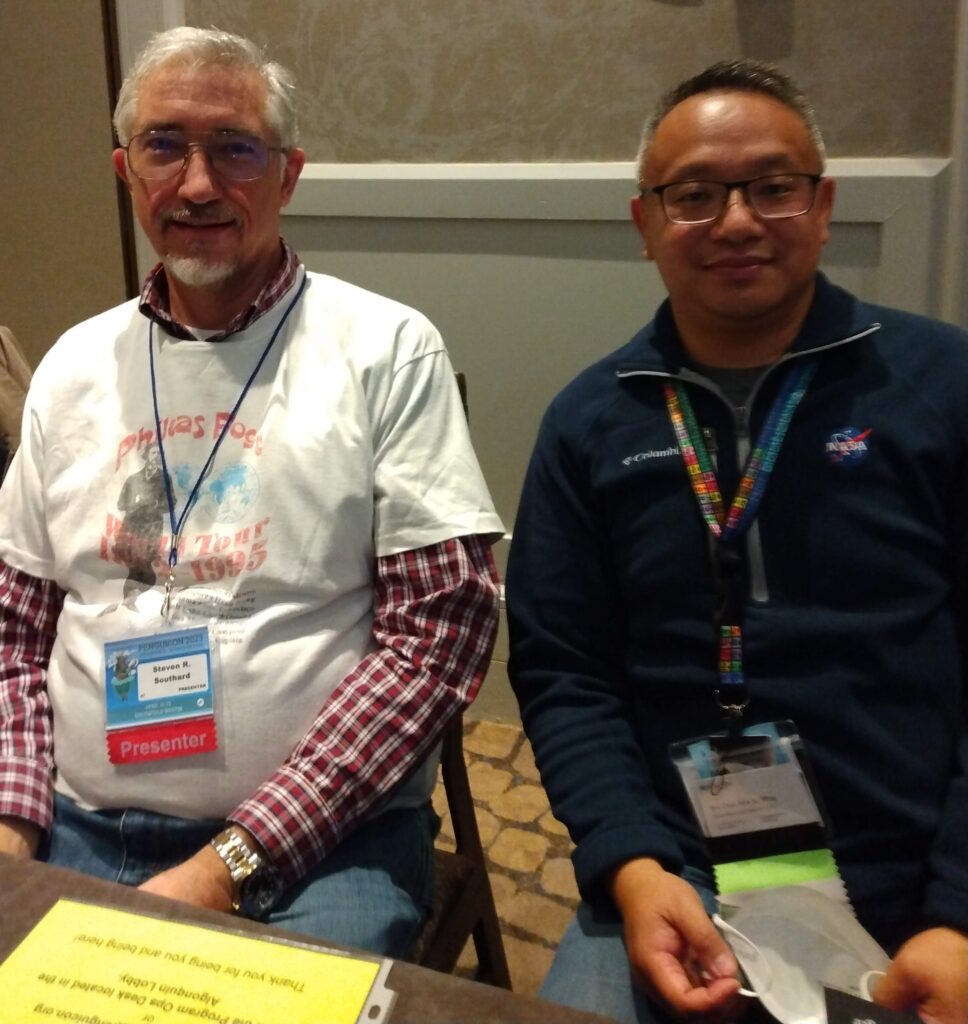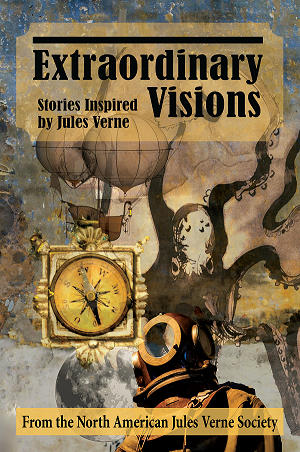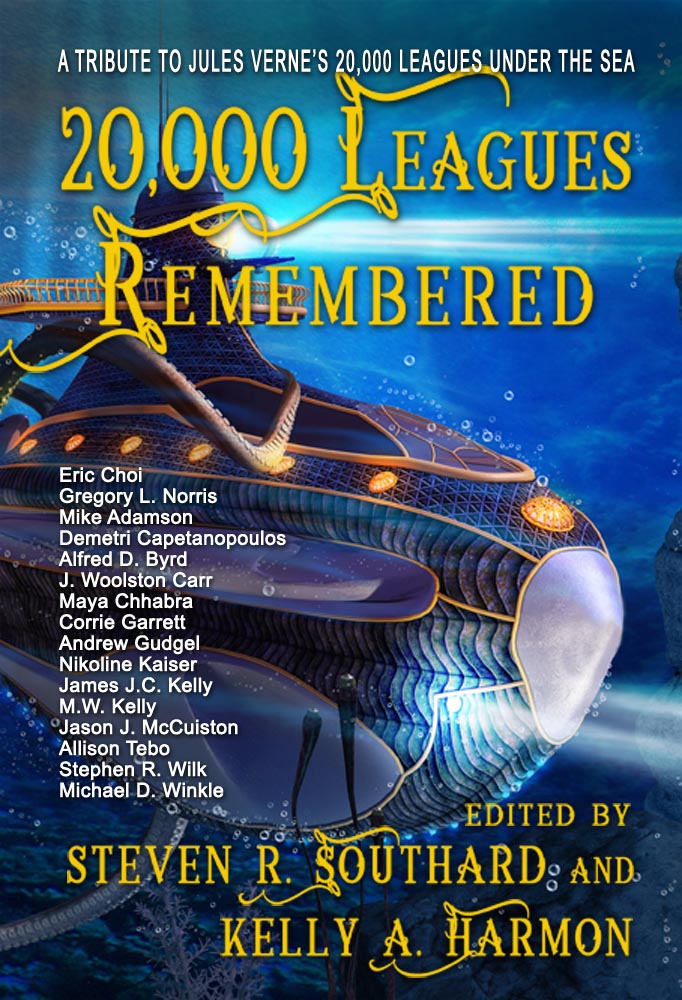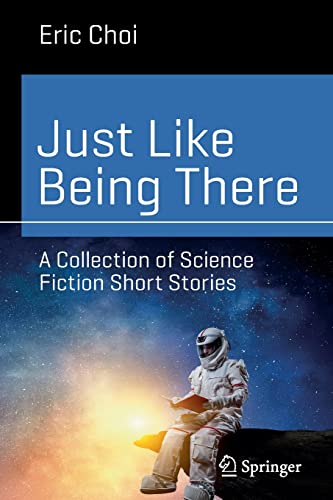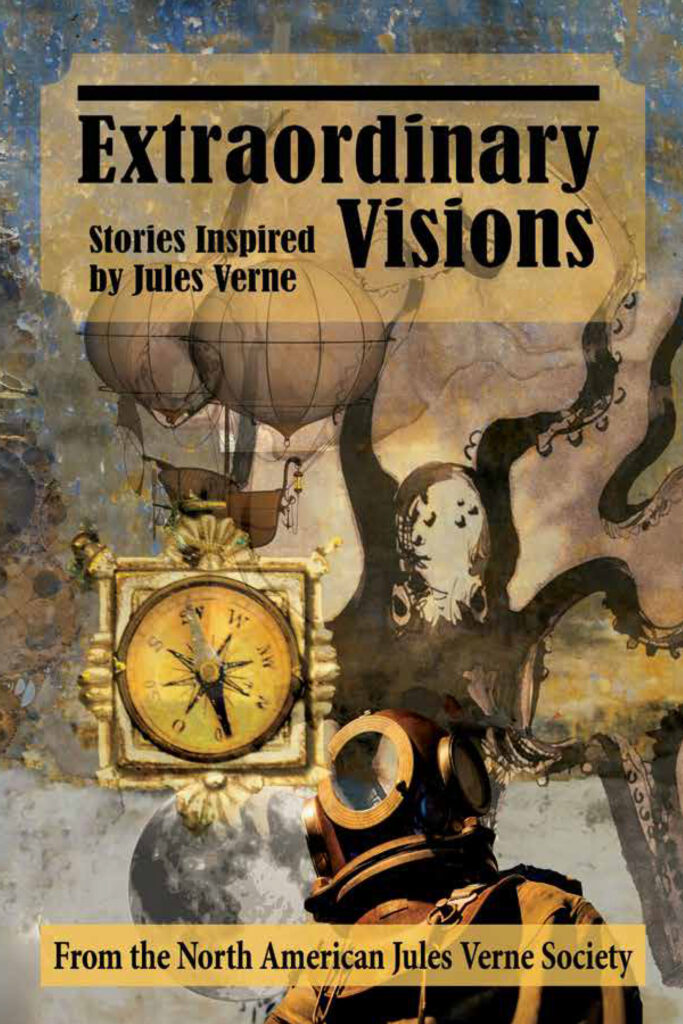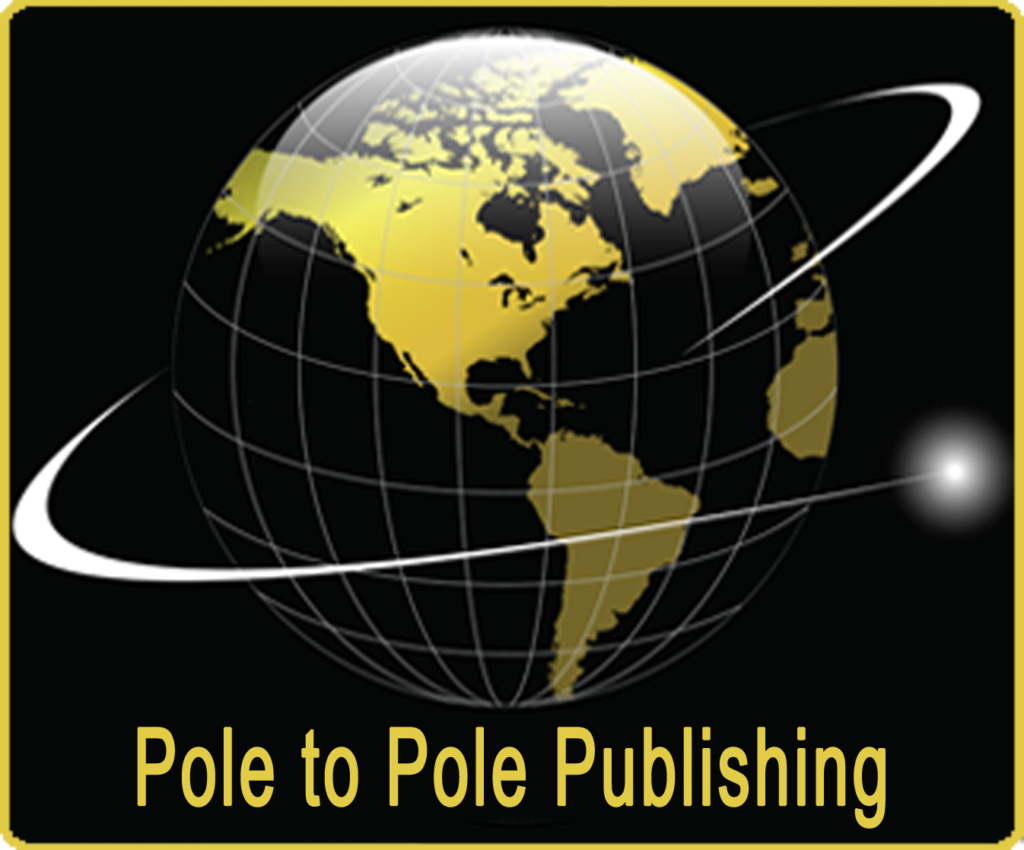If you read The Science Fiction Tarot anthology, you’ll find great fiction, and some brief bios about the authors. But to know those authors better, well, you have to read these interviews. Iain Hannay Fraser proved to be somewhat mysterious. He values his privacy—I’m not even sure that’s his real name. Lucky for you, I managed to coax him into answering some questions.
Here’s the bio for Iain Hannay Fraser:
Born on the West Coast of Canada. Previously taught English but now working as a contract writer, with specialties in tech marketing, legal analysis, and medical research. Dedicated to privacy protection, devoted to family of wife and two daughters. Lives near the ocean, rides a bike with a basket. Studied overseas.
Next, the interview:
Poseidon’s Scribe: How did you get started writing? What prompted you?
Iain Hannay Fraser: For me, it was almost a straightforward process. I have been working toward clearer communications for years in life and at work. I even spent a period of time writing and editing tweets for a business-consulting firm: sometimes trimming even one or two characters is a win. Not that “shorter” always equals “clearer”, but learning that intense discipline changed my focus on what could be left out. After a certain time, I found myself believing that my writing was clear enough to be considered nearly professional. I kept using that stylistic rigour to write short fiction, then just started submitting the stories when I was done. Once I believed that I could, it seemed an inevitable next step.
P.S.: Who are some of your influences? What are a few of your favorite books?
I.H.F.: I was influenced growing up by the early science fiction writers, who literally wrote fiction about science. This was the “pulp” period of greats like Heinlein, Clarke, and Asimov. In my adolescence I thought the social-and-technological insights of William Gibson were just the most awesomest thing ever. As an adult I wrestled with the same ethical questions as Iain M. Banks. As a writer I have come to admire stylists like Raymond Chandler, and those who elevate genre fiction to something more, like John Le Carré. My favourite book is probably Cryptonomicon by Neal Stephenson, because I think it accomplishes all these things.
P.S.: You claim to be a private person without much of an online presence. I know many writers can identify with that. If your writing career took off, with substantial sales and readers clamoring to know more about you, would you choose to open up more, or remain private?
I.H.F.: Absolutely I would still remain private. I treasure anonymity and even appreciate being ignored. I suppose fame might have some material benefits, like getting a better table at restaurants, sometimes? But I can’t really imagine enough value to overcome the substantial downside. I think I would feel an obligation to behave in a particular way, and I don’t particularly want to take on more obligations. I suppose privacy provides a lot of freedom.
P.S.: In today’s hyper-connected world where people expect others to share personal details with all humanity, you’ve chosen a private life of introspection and relative isolation. Do you believe that’s helped your fiction writing? If so, in what way?
I.H.F.: Well, I really do hope introspection improves my writing, because it’s the way I am! It’s like me writing in English—not really a choice.
I struggle continually with the way things are. I don’t just mean that the world seems a bit lost these days, though that’s also true—I mean I struggle to understand the nature of truth underlying things. This requires engagement with the world, but it is very easy to be overwhelmed by input. I withdraw after engagement, and spend a lot of time thinking about that input, and integrating it with my thoughts.
Of course, my preference to disconnect and think may also have disconnected me from what people are really like. I hope my preferences are a net positive, but it’s hard to be sure. I often feel my writing is too cerebral and not visceral enough.
P.S.: Is there a common attribute that ties your fiction together (genre, character types, settings, themes) or are you a more eclectic author?
I.H.F.: I care most about the intersection of genre fiction with substantial, quality writing. We have probably all run up against the assumption that worthwhile insight and admirable art come only from literary fiction, and that genre fiction is “just for fun”. I really dislike that assumption. I like the idea that there is substance in the books that everybody reads. So that aspect of respect for genre is always in my writing. I have a personal affinity for naval fiction, noir detectives, and the broad big tent of SF.
I also think I write more about people than about events. I’m not sure that’s wise, in the circumstances.
P.S.: The ‘day job’ mentioned in your bio sounds impressive and you specialize in several disparate fields. Does your knowledge in these fields help you in your fiction writing?
I.H.F.: Yes, but also no. There’s a truism in teaching writing: “write what you know”. This doesn’t mean just write about what happens in your family, your college classroom, your neighbourhood. I think it means, write about the human truths that your family embodies. It means write about the universal insights that are revealed by your classroom. Write about the realities of life that are played out in your neighbourhood.
So, by this same token, the work that I do has some occasionally interesting connections. But the details are the vehicle for thoughts about life. That’s what I want to write about. It doesn’t matter precisely who spilled coffee on their pants, or what stem-cell research project has just uncovered a new mechanism for treating cancers. What matters is what does either of those things mean, for people? For one person, or for all people, it doesn’t matter.
P.S.: Your short story, “Three Weeks Without Changing History,” appears in The Science Fiction Tarot. What prompted you to write this story?
I.H.F.: This story started from a sense of feeling like an outsider in my old neighbourhood. The initial scene is set in a place I used to live, and used to feel connected with. Driving through there years later, though, I felt disconnected and forgotten, as if I’d never lived there at all. It was like history had changed to write me out.
I started wondering, if I had done that—if I had written myself out of that history—what was my reason? Presumably I thought the new history would turn out better for me. That would be an interesting power, wouldn’t it?
But then I started thinking about this phenomenon I’d heard about, with regard to happiness: hedonistic adaptation. Even if things improve, you tend to wind up at the same level of happiness as before—or unhappiness. If you’re discontented, you stay discontented even if you improve your circumstances.
So, I realized, if you had the power to change history, you’d probably get addicted to using your power. That’s when the story connected to human truths, so that’s what I made it about.
P.S.: Please tell us some details about the protagonist of “Three Weeks” and his conflict.
I.H.F.: Alexei is a man out of place. Many of his memories are of worlds that no longer exist. Because he can change history, he struggles with an addiction to this power, which he has used too many times. He holds desperately onto a memory of his wife and children, who left as a consequence of his addiction. Alexei is half-committed to a twelve-step program for those who can change history, but also believes he can restore his family by changing history just one time.
P.S.: What are the easiest, and the most difficult, aspects of writing for you?
I.H.F.: The easiest part of writing is the mechanics. I believe I’ve served my ten-thousand-hour practice period, and sentences hold no fear for me any longer. I get to think about what I’m saying, instead of how to say it. To use a musical metaphor: I don’t have any more problems with my fingering.
But I don’t always know what music to play. It is often very hard, in my life circumstances, to find uninterrupted writing time to focus and achieve immersion in the free-flowing psychological state that I really need. Frustration is a daily enemy.
P.S.: What is your current work in progress? Would you mind telling us a little about it?
I.H.F.: I’m working on a novel now, my third, which like the other two is a blending of genres. This one, which is called Married to the Dead, is a blending of high fantasy (meaning, literal swords and literal sorcery in a generally-medieval setting) with detective noir (a hard-boiled cynical private investigator with past trauma but unshakeable principles, taking on high-level corruption).
It starts, because I believe in conventions, when a gorgeous woman walks into the investigator’s office and hires him to track her cheating husband. Of course that’s not the whole truth.
P.S.: What advice can you offer aspiring writers?
I.H.F.: This above all: to thine own self be true. Okay, that’s from a character by Shakespeare, and there’s good reason to doubt the quality of his fatherly advice. But I think this piece, at least, has value.
No matter how you write, or what you write, some people won’t like it. It’s important not to care about them. They want something else, and you’re not going to be any good at that something else. The only thing you can be good at, I think, is whatever thing you are. You’ll hear a lot about “finding your voice” which is a little bit mystical. What I think it means is, getting rid of all preconceptions about how your writing “should be”, and making it the best version of how it actually is.
It’s hard enough to learn the techniques of writing, and figure out the things you want to say. Nobody needs a third challenge of pretending to a different identity. You—as they say—do you.
P.S.: You’ve traveled through time and met yourself at a point when you were first thinking of being a writer. What one thing do you tell this younger version of you?
I.H.F.: I would say “don’t teach high-school English”. The teaching is fine, but the rest of the job will drain your life and screw up your self-image.
P.S.: You’ve won a trip to the fictional world of another author. Where will you go and what will you do there?
I.H.F.: I have no doubts about this at all. I would go to the Culture, the universe created by Iain M. Banks. It’s a post-scarcity society with (in effect) total freedom for all. If I went there, I would claim political asylum. If I got to live there I would do absolutely nothing at first, except live quietly in isolation with no demands on me. Ideally next to an ocean. (Some of his characters do just this in fact). The plan would be to purge the expectations of our society, so I could start from scratch and understand my own self.
It doesn’t hurt that people in the Culture are effectively immortal.
Poseidon’s Scribe: You just met an interested reader in an elevator. The reader asks, “What sort of stories do you write?” The doors will open soon, so what short answer do you give this reader?
Iain Hannay Fraser: Stories about the human experience in settings that have never existed. We’re all heading into the unknown, so it’s a good idea to practice.
Thank you, Iain.
For readers interested in Iain and his writing, I can’t offer any social media links. You’ll just have to search for his name every now and then.

